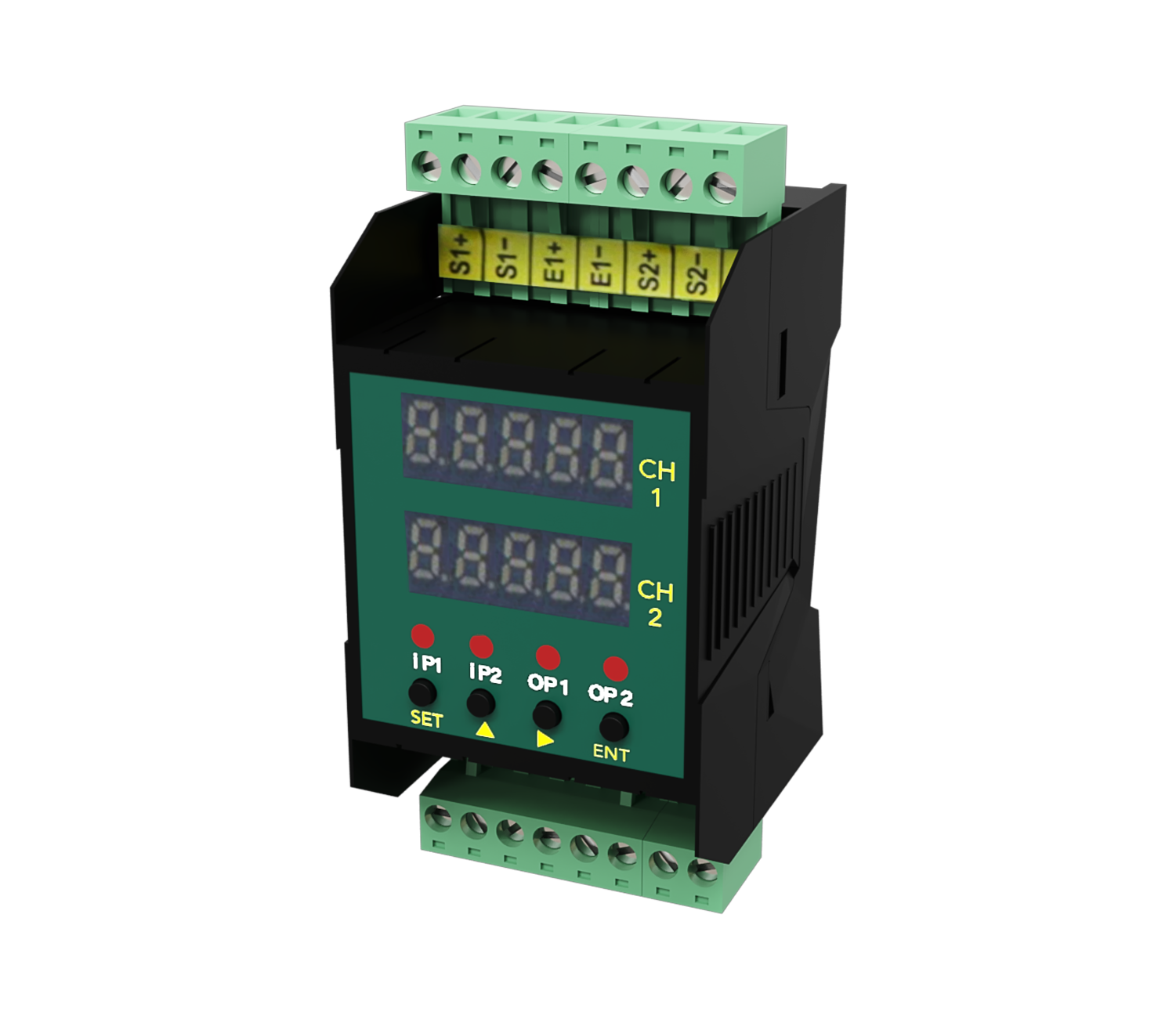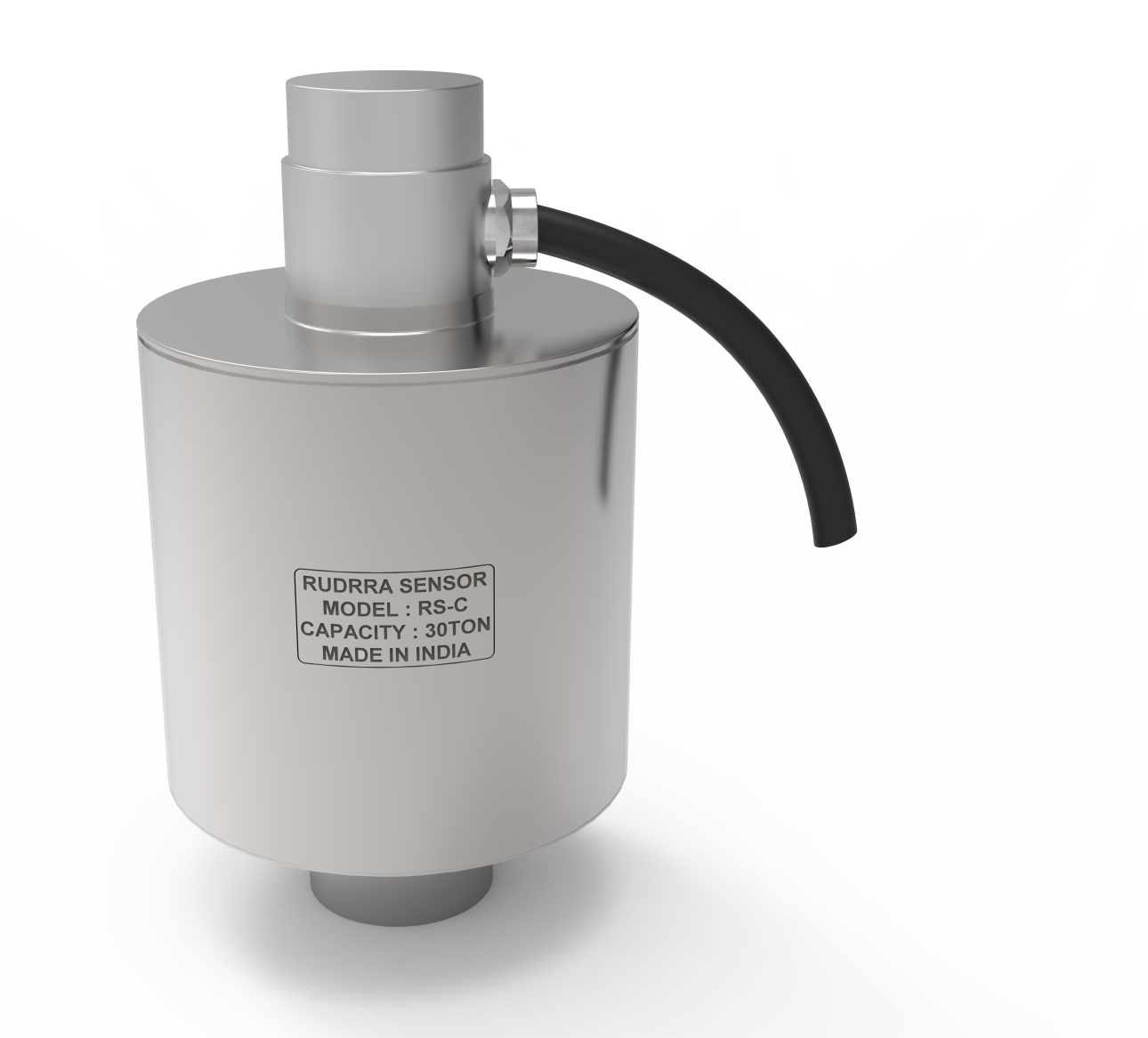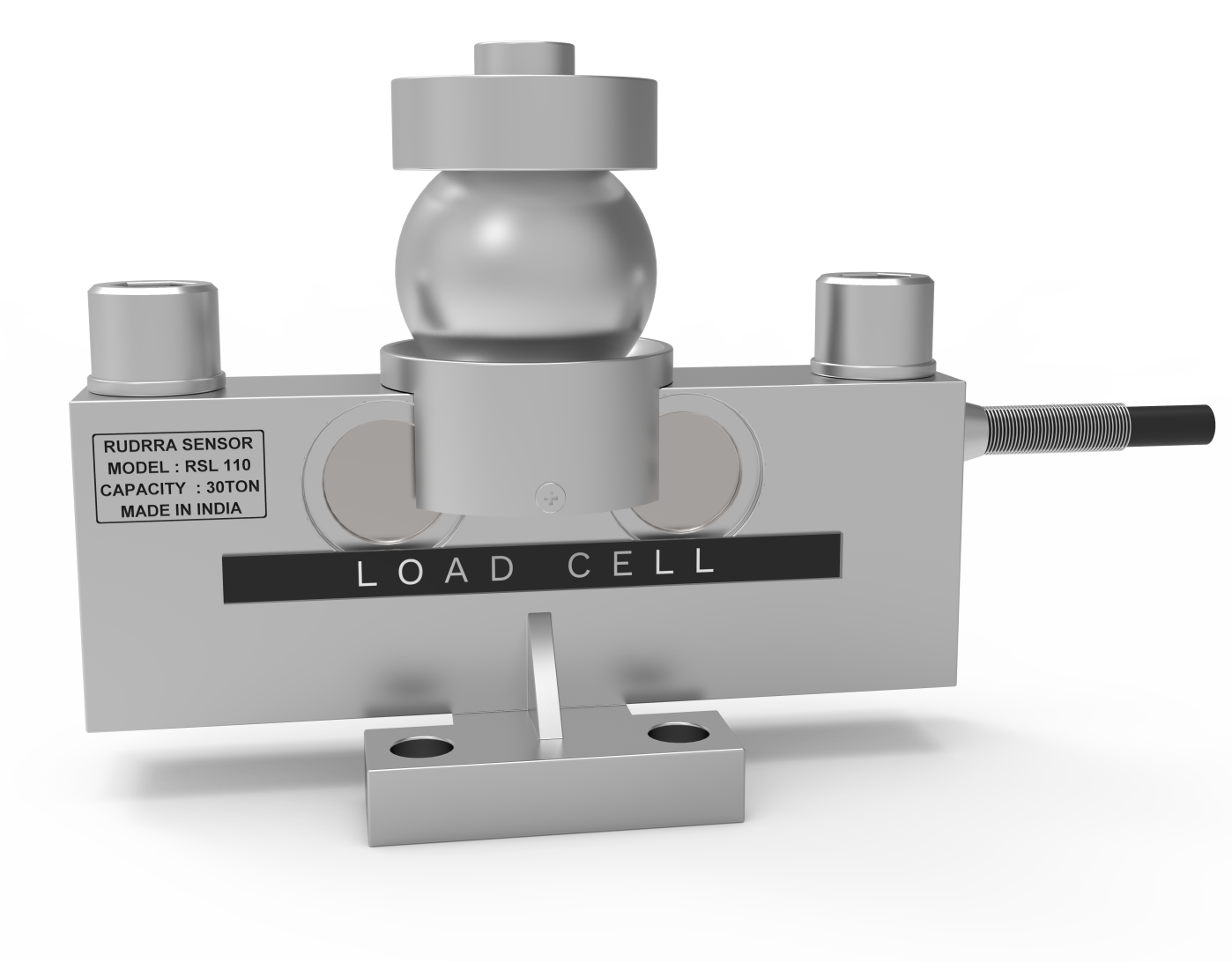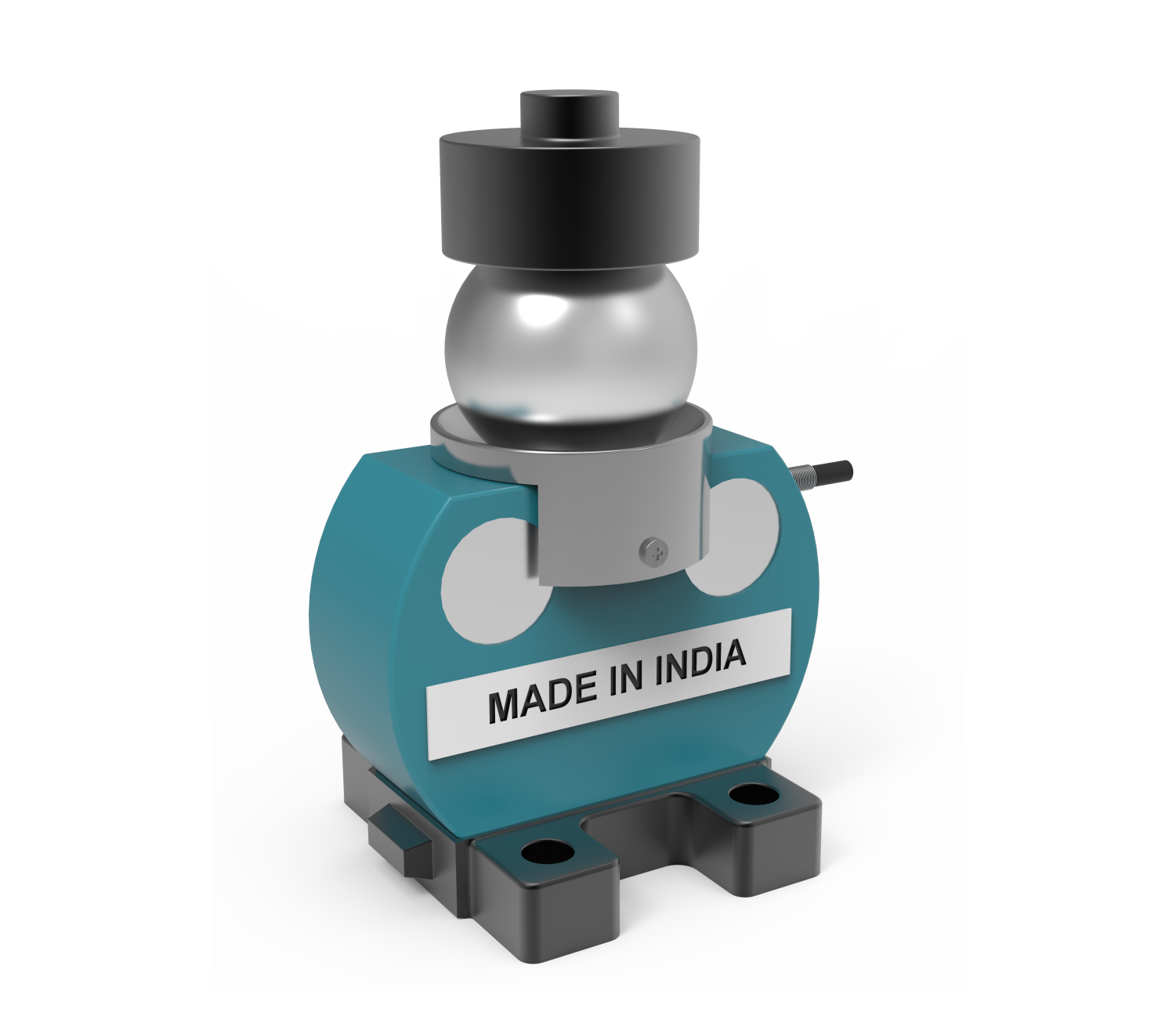
How satisfied were
you with
Rudrra Sensors??



Load Cell Module: Precision Weight Measurement Simplified
A Load Cell Module is an essential component for precise weight and force measurement. It combines a load cell sensor and an amplifier module to deliver accurate, real-time digital readings, making it ideal for a wide range of applications from digital scales to industrial automation systems.
The RS-202-2CH Load Cell Module by Rudrra Sensor is a high-precision device engineered for industrial-grade applications requiring accurate force measurement. Designed to interface seamlessly with various automation systems, this dual-channel load cell module delivers reliable and consistent performance across a range of operational environments.
Key Feature :
Compatibility with standard 24VDC supply
Dual-channel load cell with individual value display
Engineer-friendly keypad interface for configuration
Compact and noise-free design
High precision with 1/10000 division at 200SPS and 1/50000 divisions at 40SPS
Dual seven-segment, five-digit displays
RS-485 communication for high-speed data transfer
2 Digital input for individual tare control
2 Digital output for peripheral control
Application :
Process automation for controlling multiple tanks
Batching plants
Packaging machines
Monitoring multiple load cells simultaneously
Dual tensile testing machines
Control panels integrated with PLCs
Dimensions :
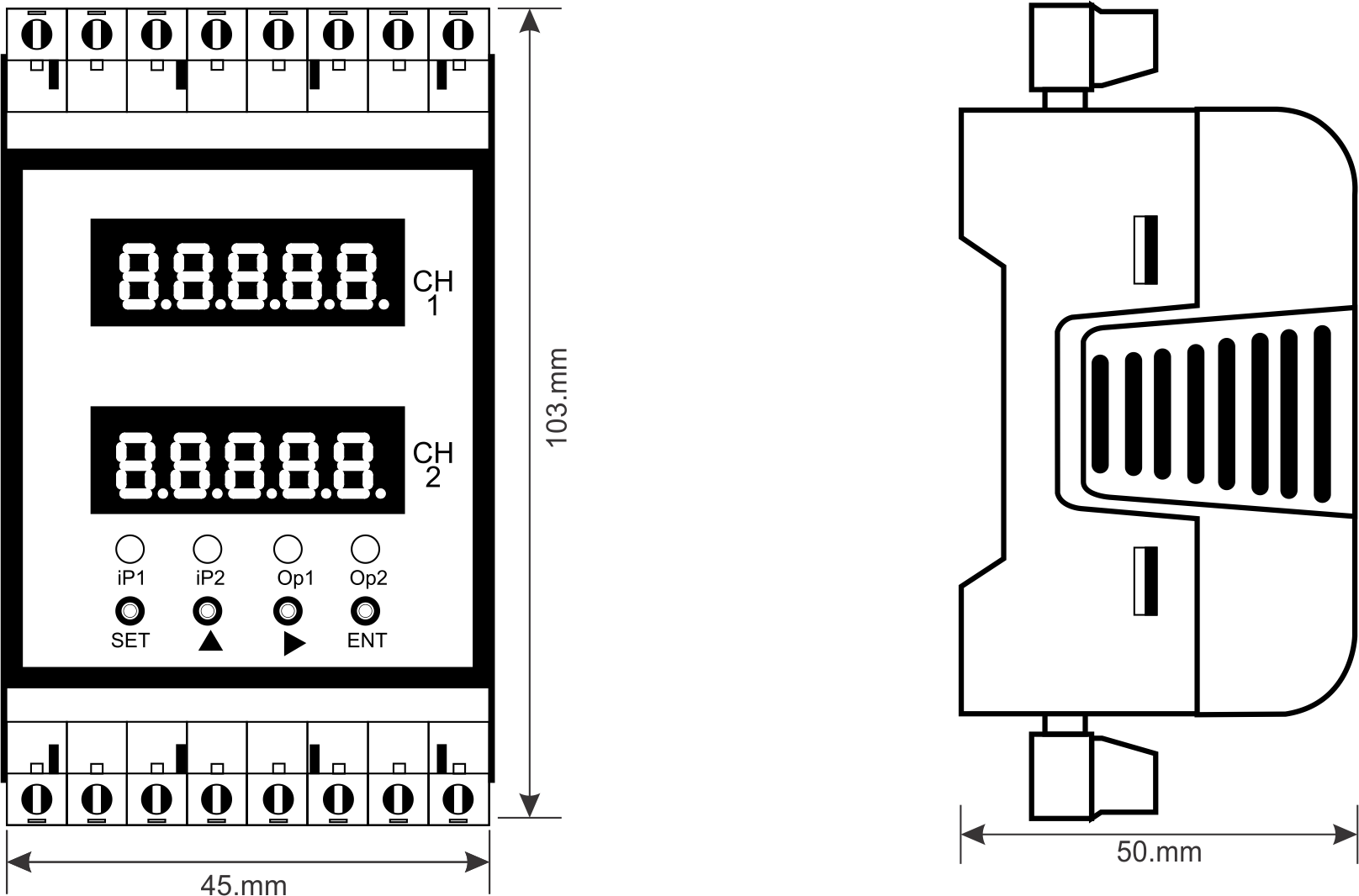
Technical Features of Load Cell Modules
Channel Configurations
o Single-Channel Modules: Ideal for basic weighing systems, suitable for small platforms or single-point applications.
o Dual (Double)-Channel Modules: Used for applications requiring two load cells, ensuring enhanced stability and accuracy.
o Multi-Channel Modules: Suitable for complex systems like conveyor belts or multi-point weighing systems, handling inputs from multiple load cells simultaneously.
Precision Amplifier Technology
o High-gain amplifiers to process low-magnitude signals from strain gauges
o Stable analog-to-digital conversion for noise-free, accurate readings.
Load Cell Compatibility
o Compatible with tension, compression, and shear beam load cells for diverse industrial applications.
o Supports weight capacities ranging from a few grams to several tons, depending on the connected load cell.
Durability and Environmental Protection
o Designed for industrial use with rugged enclosures.
o Options for waterproof and dustproof modules for harsh conditions.
o Operates efficiently in variable temperature environments.
Technical Specifications
o Supply Voltage: 3.3V to 5V DC.
o Output Resolution: High-resolution digital output for precise measurements.
o Operating Temperature: Wide range to suit industrial setups.
How Load Cell Modules Work
1. Signal Acquisition: The strain gauge in the load cell detects mechanical force, altering its resistance.
2. Signal Amplification: The load cell module amplifies the signal, converting it to a measurable digital output.
3. Data Processing: The output is fed into controllers, PLCs, or microcontrollers for display and automation.
Advantages of Load Cell Modules
High Precision
Enables weight measurements with minimal error.
Easy Integration
Compatible with popular microcontrollers for seamless operation.
Compact Design
Ideal for both portable and embedded applications.
Cost-Effective
Offers a reliable and affordable solution for weight measurement needs.
How to Use a Load Cell Module
1. Connect the Load Cell: Wire the sensor to the amplifier module.
2. Interface with Microcontroller: Link the module to a microcontroller
3. Calibrate the System: Use known weights to calibrate for accuracy.
4. Read and Display Data: Process the digital signal and display the weight via an LCD or serial monitor.
Buying Guide for Load Cell Modules
• Ensure the load cell capacity matches your application requirements.
• Verify compatibility with your microcontroller.
• Opt for modules with pre-soldered connectors for easier setup.
• Consider environmental factors like temperature or vibration and choose load cells with appropriate protection ratings (e.g., IP65 or IP67).
FAQs about Load Cell Modules
1. What is a load cell module, and how does it work?
A load cell module combines a load cell sensor with an amplifier circuit to measure force or weight. It converts mechanical force into an electrical signal, which is processed and displayed digitally.
2. What types of load cell modules are available?
Load cell modules come in single-channel, dual (double)-channel, and multi-channel configurations to suit various applications, from simple weight measurements to complex systems.
3. What are the main components of a load cell module?
The main components include the load cell (sensor) and an amplifier circuit for signal processing and output.
4. What is the difference between single-channel and dual-channel modules?
A single-channel module supports one load cell, while a dual-channel module can process signals from two load cells, enhancing versatility and accuracy.
5. How accurate are load cell modules?
Load cell modules are highly accurate, with precision depending on the quality of the load cell, amplifier, and calibration.
6. What is the maximum weight capacity of a load cell module?
The weight capacity depends on the load cell used, ranging from a few grams to several tons.
7. Can load cell modules be used in industrial environments?
Yes, modules designed by Rudrra Sensor are rugged and capable of withstanding harsh conditions, including temperature extremes, dust, and moisture.
8. How is a load cell module powered?
Most load cell modules require a low-voltage DC power supply, typically 3.3V to 5V.
9. What is a multi-channel load cell module used for?
Multi-channel modules process inputs from multiple load cells, making them ideal for applications like conveyor systems or multi-point weighing.
10. Can a load cell module interface with microcontrollers?
Yes, load cell modules are designed to interface seamlessly with microcontrollers like Arduino and Raspberry Pi.
11. How do I calibrate a load cell module?
Calibration involves applying known weights, recording outputs, and adjusting settings to ensure accurate readings.
12. Are Rudrra Sensor load cell modules customizable?
Yes, Rudrra Sensor offers tailored solutions to meet specific industrial or application requirements.
13. What industries use load cell modules?
Industries such as manufacturing, logistics, food processing, material handling, and robotics widely use load cell modules.
14. How durable are Rudrra Sensor load cell modules?
Rudrra Sensor modules are highly durable, designed for long-term use in demanding environments.
15. Can load cell modules measure both tension and compression?
Yes, depending on the type of load cell connected, modules can measure both tension and compression forces.
16. What environmental factors affect load cell module accuracy?
Temperature changes, vibrations, and humidity can impact accuracy, but Rudrra Sensor modules are built to minimize such effects.
17. Can load cell modules handle dynamic loads?
Yes, with proper damping and signal processing, load cell modules can measure dynamic loads in motion.
18. How are Rudrra Sensor modules different from others?
Rudrra Sensor modules stand out due to their precision engineering, robust design, and 20+ years of manufacturing expertise.
19. What certifications do Rudrra Sensor load cell modules have?
Rudrra Sensor modules meet industry standards and are manufactured under stringent quality controls.
20. Can multiple load cells be connected to a single module?
Yes, with multi-channel modules, multiple load cells can be connected for advanced applications.
21. What is the output format of a load cell module?
Load cell modules typically provide digital output signals compatible with various control systems.
22. How can I protect a load cell module in outdoor conditions?
Use waterproof and dustproof enclosures and ensure proper installation to protect against environmental factors.
23. What is the lifespan of a load cell module?
With proper use and maintenance, Rudrra Sensor load cell modules can last for many years, even in challenging environments.
24. Do Rudrra Sensor modules support global shipping?
Yes, Rudrra Sensor exports to over 10 countries, ensuring global accessibility.
25. What are some typical applications of load cell modules?
Typical applications include digital scales, hopper and tank weighing, conveyor systems, robotic force sensing, and industrial automation setups.
Why Choose Rudrra Sensor Load Cell Modules?
As a trusted manufacturer since 2001, Rudrra Sensor offers premium quality load cell modules designed to meet the diverse needs of industries. Based in Ahmedabad, Gujarat, India, Rudrra Sensor has a strong presence in over 20 states across India and exports to more than 10 countries. With expertise in manufacturing, supplying, and exporting precision instruments, Rudrra Sensor delivers solutions tailored to your specific requirements.
Conclusion
The Load Cell Module, featuring a reliable load cell and amplifier, is a versatile and efficient solution for accurate weight measurement in a variety of applications. Its precision, affordability, and ease of use make it a preferred choice for engineers.
Rudrra Sensor's Load Cell Modules, backed by two decades of expertise, offer unmatched precision and reliability for weight measurement. Their advanced technology and commitment to quality make them the ideal choice for industries worldwide.
 Download PDf File
Download PDf File